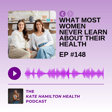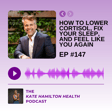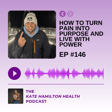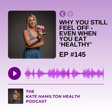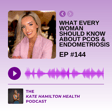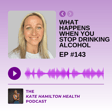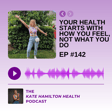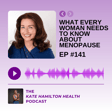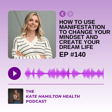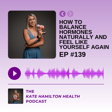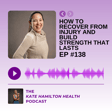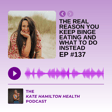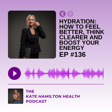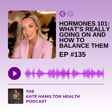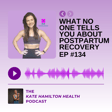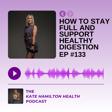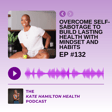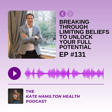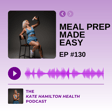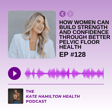
#129: Ashley Bizzell: The power of lifestyle medicine to reverse disease and improve health
In this episode of the Kate Hamilton Health podcast, I sit down with Ashley Bizzell, a registered dietitian and diabetes care specialist with a deep passion for using lifestyle medicine to reverse chronic disease. We dive into the powerful connection between nutrition, fasting, and sustainable health - and how small, strategic changes can lead to big transformations.
Ashley shares her clinical experience and gives us a closer look at the science behind the fasting-mimicking diet, what makes it unique, and how it supports metabolic health, insulin sensitivity, and inflammation reduction. We also talk about real-world strategies for creating long-term habits, how to balance whole foods and supplements, and why telehealth is changing the game for accessible, ongoing care. If you're curious about reversing conditions like type 2 diabetes or heart disease through lifestyle shifts, this episode is packed with actionable insight.
Disclaimer: I don’t personally recommend fasting as a universal approach and share my concerns in this episode. This conversation is meant to inform - not replace personalised medical advice.
EPISODE HIGHLIGHTS:
[0:17] - Ashley’s journey from traditional nutrition into lifestyle medicine and telehealth
[1:24] - What you need to know about fasting and its metabolic benefits
[6:15] - The difference between intermittent and prolonged fasting
[14:16] - Real-life examples of how fasting and nutrition reversed chronic conditions
[25:23] - Finding the right balance: lifestyle, nutrition, and practical change
[32:43] - Ashley’s top dietary recommendations for sustainable health
[41:33] - Whole foods vs. supplements: what really matters for your body
[50:50] - How telehealth is transforming access to coaching and chronic care
Links & Resources:
- Connect with me on Instagram here
- Connect with Ashley on Instagram here
- Learn more about KHH coaching here
- Learn more about L-Nutra here
If you enjoyed this episode, please subscribe, leave a review, and share it with friends who might benefit. For more health and fitness tips, follow me on Instagram and TikTok @katehamiltonhealth.
Music b LiQWYD Free download: hypeddit.com/link/xxtopb [http://hypeddit.com/link/xxtopb] Promoted by FreeMusicPromo [https://www.youtube.com/channel/UCbycji-eySnM3WD8mbxPUSQ] / @freemusicpromo
